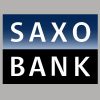London’s FTSE 100 has taken the lead in the decline of European bourses on Wednesday due to a surprise increase in UK inflation. Interest rate-sensitive stocks, including housebuilders, real estate, and utilities, are feeling the impact of this uptick.
The Office for National Statistics in Britain reported that consumer prices rose by 4% in the year to December, surpassing November’s 3.9% and economists’ forecast of 3.8%. This marks the first rise in headline inflation in 10 months.
As a result, the pound rallied 0.3% to $1.2675, and UK government bond yields saw a jump as traders scaled back their expectations for the pace of Bank of England interest rate cuts.
Economist Kathleen Brooks at XTB Online Trading mentions, “Market expectations for interest rates have been scaled back this week, and there are now just under 5 interest rate cuts priced in for the UK economy between May and the end of 2024. If the trend of rising prices continues, we could see further scaling back of rate cut expectations.”
Head of Money and Markets at Hargreaves Lansdown, Susannah Streeter, highlights that the reduction in UK rate-cut bets aligns with efforts from Federal Reserve officials to calm the market regarding the speed at which borrowing costs will be reduced this year. This factor is also weighing on risk appetite.
Market Turmoil Hits Global Stocks
Stock markets around the world experienced a negative turn as concerns about interest rates and economic growth weighed on investor sentiment. Wall Street’s decline extended into Asian markets, with the FTSE 100 in London also affected.
FTSE 100 Falls Amid Mortgage Rate Concerns
London’s blue-chip index, the FTSE 100, dropped 1.7% as fears of higher mortgage rates hit the homebuilding sector. Persimmon, one of the UK’s leading homebuilders, saw its shares fall over 4%. The real estate and utility sectors, known for their attractive dividend yields, also faced losses. Land Securities and Severn Trent both experienced declines of 3%.
China’s Struggles Weigh on Resource Companies
Resource companies faced significant challenges, primarily driven by concerns over China’s economic growth. Glencore and Antofagasta were particularly impacted, with their shares falling by 3.14% and 2.65% respectively. Chinese GDP data revealed a growth rate of 5.2% for the fourth quarter, lower than market expectations of 5.3%. This news alarmed investors, who worried that commodities demand from China, an economic powerhouse, could weaken.
European Markets Also Slip
The DAX in Frankfurt and the CAC 40 in Paris both experienced declines of 1% and 1.1% respectively. Benchmark German government bond yields traded near 5-week highs after European Central Bank President Christine Lagarde expressed caution about rate-cut expectations, contributing to the overall market decline.
Overall, stock markets globally faced a turbulent period as interest rate uncertainties and concerns over China’s economic growth weighed heavily on investor confidence.








Leave a Reply